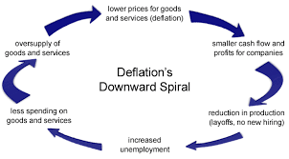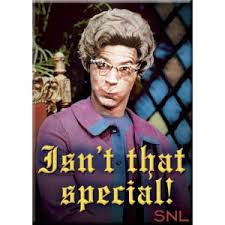The marketing trick that I will share with you today can be used to solicit commercial loans, find hungry commercial real estate buyers, find developers ready to order plans, identify bankers about to order a toxic report, or even real estate brokers ready to order a title commitment (called a preliminary report for those of you west of the Mississippi).

The trick:
Find another company - not a competitor - who advertises to the same potential customers and then split the cost of the advertisement with them.
Folks, product placement (when James Bond drives a BMW in the latest 007 movie) and cooperative advertising is the latest trend in marketing. Last night Cisca and I counted FIVE commercials in just two hours where two different advertisers shared the cost of a 30-second TV ad. Doritos shared an ad with the new Ice Age movie. Safeco shared an ad with Banana Republic. Now that I have pointed it out, you will see marketers from two different companies sharing the cost of marketing everywhere.
Another example:
I own 100% of both C-Loans, Inc. and Blackburne & Sons Realty Capital Corporation. C-Loans, Inc. provides software to banks and other commercial lenders that allows them to receive commercial mortgage leads / mini-app's online. The only twist is that our lenders only pay us if they actually close a deal. That's fine with us because our lenders have closed more than 1,000 commercial real estate loans using our software. Smart tip: You make far more money if you are willing to work on a contingency (success only) basis.
Blackburne & Sons is a private money commercial lender - but with a twist. We make long-term commercial loans (permanent loans), as opposed to bridge loans, and we make our dough, not from up-front points, but rather from a very profitable loan servicing fee (essentially an interest rate spread).
My two companies are NOT competitors, yet they market to the exact same customer base: commercial real estate brokers, mortgage brokers, lenders, and investors.
Therefore those of you who have received our fun newsletters have probably noticed that our C-Loans newsletters contain a lot of plugs for Blackburne & Sons and our Blackburne & Sons newsletters contain a lot of plugs for C-Loans. Voila - a perfect example of co-op marketing!

And another example:
Bob and Steve are drinking buddies. Bob works for a sub-prime residential lender, and Steve brokers commercial loans. Bob gets 90% of his business by sending newsletters by snail mail to A-paper residential mortgage brokers, soliciting them for their turndowns. One day, between beers and ribald jokes, Steve complains to Bob, "I've got 500 residential mortgage brokers on my mailing list, but it costs me $1.50 per broker to send them a snail mail newsletter. As a result, I can only afford to mail to them once a month. If only I could get my cost down to $0.75 per newsletter. Then I could advertise twice per month, and I would make a lot more money."
Through a beer fog, Steve still sees an opoportunity. "You know, Bob, you and I are not competitors. You're a residential guy, and I'm a commercial guy. We both advertise separately to residential mortgage brokers. Why don't we share the envelope? You stick in a one-page flyer about subprime residential mortgages, and I'll stick in a one-page flyer about commercial mortgages. Then we'll share the cost of the snail mail postage and envelope. It's a huge win-win."
Mary, a hot, 39-year-old, recent divorcee, notices Steve (who is sort of butt-ugly) through her own beer googles and thinks to herself, "Well, he's not that bad." Later Mary invites him home "for coffee". It was a great evening all around for Steve. Mary chewed her arm off rather than wake Steve in the morning.
One final hypothetical example:
A title company, a toxic report company, and an appraisal company should share their contacts, split the ad costs, and - if each firm paid one-third - each reduce their cost of advertising by 67%.
Sorry guys, but you must be a commercial real estate loan officer working for either a commercial bank or a credit union to take advantage of the following offer:
A perfect example of cop-op marketing is when a commercial brokerage company (they sell commercial-investment real estate) opens a small commercial mortgage brokerage operation. The dough they spend advertising for commercial loan clients will introduce them to a tons of wealthy investors - to whom they can later obtain listings or sell commercial-investment property. Verbal proof story: I now manage $50 million in commercial real estate loans for my investor clients. The vast majority of my early investors were commercial loan clients (borrowers!) for whom I worked on a loan.
Got a commercial loan that is clean enough for a life company, a commercial bank, or a conduit?
Does your commercial mortgage borrower have less-than-stellar credit? Is your client's company losing money? Is your borrower a foreign national? Do you need a non-recourse loan? Do you need a commercial loan with no prepayment penalty? Is your client's commercial property partially vacant? Do all of your commercial leases run out in the next 18 months? Do you need a lender who will allow a negative cash flow? Do you need a lender who will also look at the borrower's global income - income from salaries, other investments, etc.? Do you need a lender who will allow the seller to carry back a second mortgage? Does your client have a balloon payment coming due on his commercial property? Has your bank offered him a discounted pay-off?
Did you learn something today? Want to receive free training in commercial real estate finance? I try to write two training articles per week.
Got a buddy or a co-worker who would benefit from learning commercial real estate finance?













 Deflation is a very serious threat in Europe. The problem with deflation is that once it takes root in the minds of consumers, they start to put off their purchases of cars, houses, and other big ticket items. Why buy a car today when it will only be cheaper next year? As borrowers procrastinate, sales fall off for manufacturers. Manufacturers respond by laying off workers, which reduces demand even more, which leads to even more falling sales and layoffs. Deflation has the potential to become a death spiral for an economy.
Deflation is a very serious threat in Europe. The problem with deflation is that once it takes root in the minds of consumers, they start to put off their purchases of cars, houses, and other big ticket items. Why buy a car today when it will only be cheaper next year? As borrowers procrastinate, sales fall off for manufacturers. Manufacturers respond by laying off workers, which reduces demand even more, which leads to even more falling sales and layoffs. Deflation has the potential to become a death spiral for an economy.


 I just completed a new training article on how commercial construction loans are underwritten. It was the hardest subject that I have ever attempted because bankers use five different financial ratios when underwriting commercial construction loans. The article took me two weeks to write.
I just completed a new training article on how commercial construction loans are underwritten. It was the hardest subject that I have ever attempted because bankers use five different financial ratios when underwriting commercial construction loans. The article took me two weeks to write.


 Today you will learn a new financial ratio, the New-Money-to-Old-Money Ratio.
Today you will learn a new financial ratio, the New-Money-to-Old-Money Ratio. The following article has immensely helpful information for anyone in the commercial real estate business - be she a commercial loan broker, a commercial broker (you sell real estate), or an investor. The article is short, but it hits you with great tool after great tool (all free), bam-bam-bam. Prepare to be wowed:
The following article has immensely helpful information for anyone in the commercial real estate business - be she a commercial loan broker, a commercial broker (you sell real estate), or an investor. The article is short, but it hits you with great tool after great tool (all free), bam-bam-bam. Prepare to be wowed:

 I would love to take credit for this wonderful blog article; but it was written by the lovely and smart
I would love to take credit for this wonderful blog article; but it was written by the lovely and smart  This whole subject of mezzanine loans, preferred equity, venture equity, capital stacks, senior stretch financing, A/B Notes, and syndicated loans is called
This whole subject of mezzanine loans, preferred equity, venture equity, capital stacks, senior stretch financing, A/B Notes, and syndicated loans is called 


 A gorgeous $50+ million commercial construction loan was entered into
A gorgeous $50+ million commercial construction loan was entered into 

 Blackburne & Sons
Blackburne & Sons


 Carol Conman was a beauty. When she would sashay into a room, in her tight skirt and her push-up bra, every man in the room would ache with desire. Carol was also a crook. Now she didn't rob and steal. She was a white-collar criminal, and sadly state authorities rarely have the resources or the will to pursue white collar criminals. (The gorgeous model in this picture is not Carol, but you guys get the picture.)
Carol Conman was a beauty. When she would sashay into a room, in her tight skirt and her push-up bra, every man in the room would ache with desire. Carol was also a crook. Now she didn't rob and steal. She was a white-collar criminal, and sadly state authorities rarely have the resources or the will to pursue white collar criminals. (The gorgeous model in this picture is not Carol, but you guys get the picture.)



